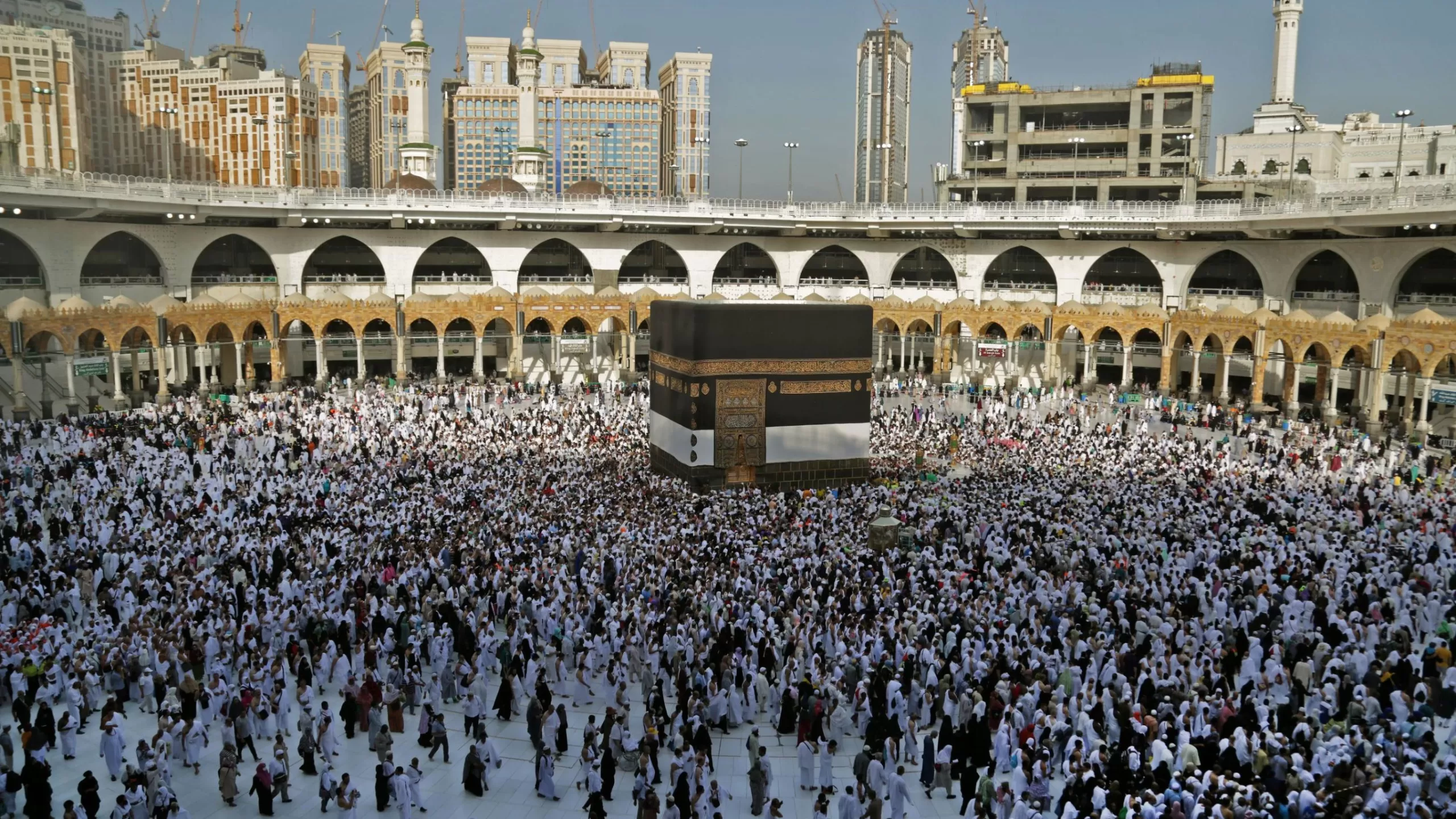 You might, in the course of your daily lives, hear Muslims talking about the Islamic way; the Islamic way to dress, the Islamic way to eat, and the Islamic way to wash. This is because Islam is a holistic way of life. It is not separated into physical, emotional and spiritual areas; rather Islam teaches that all aspects of life combine to fulfil one purpose; the worship of God.
You might, in the course of your daily lives, hear Muslims talking about the Islamic way; the Islamic way to dress, the Islamic way to eat, and the Islamic way to wash. This is because Islam is a holistic way of life. It is not separated into physical, emotional and spiritual areas; rather Islam teaches that all aspects of life combine to fulfil one purpose; the worship of God.
"And I (God) created not the jinn and humankind except to worship Me (Alone)." (Quran 51:56)
All actions performed in the daily and all actions carried out during the course of life can be raised to the status of worship simply by doing them as taught by Prophet Muhammad and to seek His pleasure.
In this article we are going to look at the Islamic way to treat guests. Prophet Muhammad reminded us of the high status of one who treats his guest well when he said, "…Let the believer in God and the Day of Judgment honour his guest." Honouring, or treating a guest well is coupled with two of the most important beliefs in Islam, belief in God and belief in the Day of Judgment. In Islam, the hospitality relationship is triangular; it consists of host, guest, and God. Hospitality is a right rather than a gift, and the duty to supply it is a duty to God.
When a guest arrives at your home, whether he or she is expected or not, if you remember a few simple things it is easy to provide your guest with a pleasurable experience and to reap the rewards attained by pleasing God. Greet the guests warmly, welcome them to your home and show them into a comfortable and appropriate room. Hasten to provide them with food and drink in order that they do not have to ask for these things. Prophet Muhammad showed respect to his guests by offering them the choicest food and delivering it in a timely manner.
The guest also has responsibilities. One of them is to announce his or her visit in advance whenever possible. Another is to hasten to taste the refreshments and to pray for and ask blessings upon the host. After seeing to the initial needs of his guest the Muslim should take interest in his or her conversation. However, if the guest should speak about or engage in unlawful activity, the Muslim has every right to ask him to refrain from doing so.
It is the host’s duty to make the guest feel comfortable. One way of doing this is by identifying his or her possible needs in advance. It is better to offer a guest something before he or she has the chance to ask for it because a courteous guest may hesitate to mention any need. Out of his or her thoughtfulness, such a guest would even try to prevent the host from offering anything. The Quran offers the example of Prophet Abraham anticipating the guest’s needs and hastening to fulfil them.
Has the story reached you of the honoured guests of Abraham? Behold, they entered his presence and said: "Peace!" He said: "Peace!" (and thought: "They seem) unusual people." Then he turned quickly to his household, brought out a roasted fattened calf, and placed it before them. He said: "Will you not eat?" (Quran 51: 24-27)
In another tradition Prophet Muhammad said, "Whoever believes in God and the Last Day, let him honour his neighbour; whoever believes in God and the Last Day, let him honour his guest as he is entitled." It was said, "What is his entitlement, O Messenger of God?" He said, "[The best treatment] for one day and one night; and hospitality is for three days, and anything after that is charity bestowed upon him. And whoever believes in God and the Last Day, let him, speak good words or else remain silent." He also said, "…And it is not lawful for a guest to stay with his host for such a long period as to put him in a critical position."
Again the responsibility of the guest is to bear in mind the conditions of his host and not burden him with what he cannot afford. When Prophet Muhammad was explaining why a guest should not stay for long periods of time he said that by prolonging his stay a guest might cause his brother to be involved in sin. He was asked as to how he could be involved in sin? Prophet Muhammad answered, ‘By prolonging his stay with his host when he has nothing (left in his house) with which to entertain him.’
One of the great Islamic scholars of Islam, Abu Ḥamid Muhammad ibn Muhammad al-Ghazali (1058–1111 CE) wrote a beautiful paragraph about the generosity of Prophet Muhammad to his guests. "(He) used to honour his guests; he even spread his garment for a non-relative guest to sit on it. He used to offer his guest his own cushion and insist on him to accept it until the latter accepted it from him. No one came to him as a guest but thought that he was the most generous of people. He gave each one of his companion’s sitting with him his due portion of his attention, so he directed his listening, talking, looks and attention to all his companions. His meetings were characterized by modesty, humbleness and honesty. He used to call his companions by their favourite nickname to honour them…"
The companions were eager to emulate the ways of Prophet Muhammad. A verse in the Quran was revealed highlighting the hospitality shown to a guest by the companions Abu Talha and his wife Umm Sulaim. Abu Talha welcomed a hungry traveller into his home even though they had very little to eat. Thus he asked his wife to bring whatever provisions they had and give it to the guest. As the guest ate his fill, they pretended to eat in the dim candlelight. The following day Prophet Muhammad gave them the great news that God had revealed a verse about them and their generosity.
"…but give them preference over themselves, even though they were in need of that. And whosoever is saved from his covetousness such are they who will be successful." (Quran 59: 9)
A guest enjoys a special place in Islam. Honouring the guest is tied to the faith of a true believer. Our righteous predecessors understood that and toiled hard to implement it, even the poorest of them, sometimes causing their own personal deprivation. Across the world you will find Muslims doing their best to offer hospitality to the guest in their home or their community. Entertaining a guest is important – it signifies the respect and concern of a host towards his guest and towards God. Hospitality in Islam is a triangle that links God, the guest and the host. knowingAllah.com



